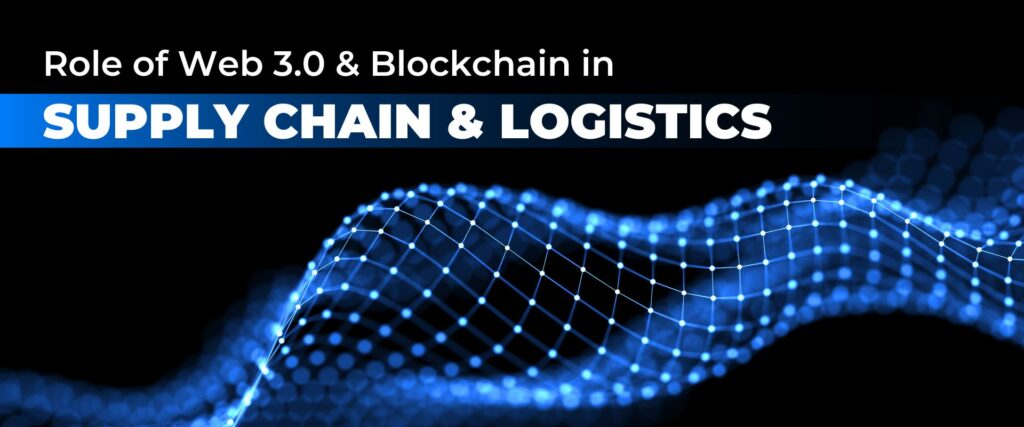Role of Web 3.0 & Blockchain in Supply chain & logistics

The advancements and innovations in the Web 3.0 world look interesting. But, let’s be honest, the creations of web 3.0 haven’t been practically implemented yet in industries except for Finance! This does not mean at all that Web 3.0 is not promising. The revolution it has brought into the finance industry translates to an exciting future.
Being a pioneer in providing technological solutions to businesses, we must always keep you updated with the latest insights about the future of technology. We always believe in delivering value to our clients and readers. Thus, in this article, we will walk you through the role of web 3.0 & Blockchain in the supply chain and logistics industry.
A brief about Web 3.0 in the Supply chain & logistics industry
Lately, the advancement of supply chain and logistics is getting a lot of attention because of an enormous backlog on the global supply chain post-pandemic. Logistics and supply chain runs the world and inefficiencies directly translate to slower global economic growth.
Technological advancements are always thought of when it comes to removing inefficiencies. Web 3.0 has many applications to offer efficient solutions for the root cause of inefficiencies in the supply chain.
For an instance, smart contracts and decentralised data management can remove the layer of time-consuming immigration and paper trails from international trade. Web 3.0 and its application are about more than just Blockchain. An amalgamation of Artificial intelligence, Blockchain and IoT is required to make viable solutions for the supply chain using web 3.0 technologies.
Let’s take a quick look at how Web 3.0 can fill all the gaps in the supply chain and logistics industry.
Benefits of Web 3.0 for supply chain and logistics
- Automating paper trail with smart contracts : Smart contracts are a particular type of digital contract with all the conditions from all the parties involved in the complete supply chain. The approvals are automated as line items are fulfilled in the smart contracts.
- Intelligent tracking : Smart tracking can remove manual checkpoint verifications. A distributed digital ledger can be maintained and connected with RFIDs to keep everyone in sync on the status of shipment/cargo.
- Replacing time logs bookkeeping with time stamping and hashings :Following the previous point, time stamping can also be migrated to complete automation. Hashing mechanisms can be implemented over the blockchain with intelligent tracking features.
- Blockchain-based audit trails : Shifting all the paper trails on Blockchain will provide the stakeholders with a real-time sync and historical data about any change in audit papers, like any change in sale order, purchase order, delivery allotment, and more.
- Security and Maintenance : Papers are easy to lose, and physical files are hard to store. Shifting to Blockchain for decentralised data storage can let you have your data for decades. Along with this, we can have the high-security standards of Blockchain.
Implementing Web 3.0 and related technologies can fill up the above-mentioned gaps quickly to make the supply chain and logistics industry more efficient.
Moreover, implementing Web 3.0 and other technologies will help the supply chain with better traceability, transparency and smoother trade. If you are in the logistics business, it is high time you consider upgrading the business operations and becoming a leading adopter of web 3.0 technology. You can also learn more about our prominence in delivering ,software solutions for the logistics industry. To speak with our expert engineers about solutions for your business, feel free to reach out to us.
